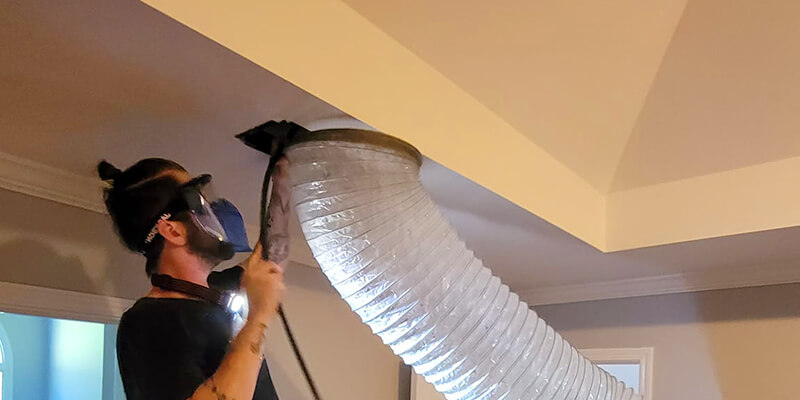
Here is Tremendous Technology Approved by Experts
If you’ve ever asked yourself, ‘What is an evaporator in HVAC system?’ then you’re in the right place. This comprehensive article delves into the complexities and functionalities of evaporators, explaining why they are vital components of your HVAC system. By understanding this key part, both homeowners and business owners can better manage their heating and cooling systems for optimal performance.
Understanding the Basics: What is an Evaporator?
An evaporator is a crucial part of an HVAC system designed to absorb heat from the air in your home or business premises. It accomplishes this by using a series of coils filled with a refrigerant that transforms from a liquid to a gas as it absorbs heat. This process significantly contributes to cooling your indoor spaces.
Why is the Evaporator Important?
Without an evaporator, your HVAC system wouldn’t be able to cool or dehumidify the air effectively. Essentially, it serves as the system’s heart and lungs, circulating refrigerant to remove heat and moisture from the air and ensuring that you stay comfortable year-round.
How Does an Evaporator Work?
An evaporator works in conjunction with other HVAC components such as the condenser and compressor. The refrigerant inside the evaporator absorbs heat from indoor air, evaporates, and then flows to the condenser, where it releases the absorbed heat. This continuous cycle is what cools the space.
Here is a link that gives you an idea of Flushing HVAC.
Types of Evaporators in HVAC Systems
Plate Evaporators
Plate evaporators use thin plates to transfer heat effectively. They are commonly used in commercial HVAC systems due to their efficiency.
Shell and Tube Evaporators
In these evaporators, the refrigerant flows through tubes surrounded by a shell filled with water or air. They are typically seen in large industrial setups.
Finned Tube Evaporators
These are the most common type found in residential HVAC systems. They feature metal fins to increase the surface area for heat exchange.
For more information, you can visit this article about Commercial Duct Cleaning.
Common Problems with Evaporators
Frost Build-Up
This occurs when the evaporator gets too cold, causing moisture in the air to freeze on the coils. Regular maintenance can help prevent this issue.
Refrigerant Leaks
A leak can drastically reduce the efficiency of your HVAC system. Immediate repair is necessary to maintain optimal performance.
Blockages
Dirt and debris can clog the evaporator coils, making it harder for the refrigerant to absorb heat. This issue can often be avoided through regular cleaning.
Maintenance Tips for Evaporators
Regular Cleaning
Ensure that the evaporator coils are free from dirt and debris. Cleaning them regularly will guarantee that they perform efficiently.
Check Refrigerant Levels
Maintaining the correct refrigerant level is crucial for the performance of your HVAC system. Regular check-ups by certified technicians can help.
Professional Maintenance
It’s essential to have your HVAC system, including the evaporator, inspected by professionals at least once a year. This will help identify and resolve issues before they become significant problems.
For more insights, read this article on Air Duct Cleaning Costs.
Energy Efficiency and Your Evaporator
Why Energy Efficiency Matters
An efficient evaporator not only cools your home better but also reduces energy consumption. This translates into lower utility bills and a smaller carbon footprint.
How to Improve Efficiency
Upgrading your HVAC system, including the evaporator, can result in substantial energy savings. Regular maintenance and timely repairs will also help in maintaining efficiency.
Future Trends in Evaporator Technology
Smart Technology Integration
Modern HVAC systems are increasingly incorporating smart technology, allowing homeowners to monitor and control their systems remotely for improved efficiency and convenience.
Eco-Friendly Refrigerants
Environmental concerns are pushing the industry toward more eco-friendly refrigerants, which work more efficiently and have a lowe r impact on the planet.
r impact on the planet.
Advanced Materials
Future evaporators may use advanced materials that improve heat exchange efficiency and reduce wear and tear. This will likely result in longer-lasting systems and lower maintenance costs.
Faq Section
What is the Lifespan of an HVAC Evaporator?
The average lifespan of an HVAC evaporator is around 10-15 years, depending on usage and maintenance.
How Often Should I Clean My Evaporator Coils?
For optimal performance, you should clean your evaporator coils at least once a year.
Can I Inspect My Evaporator Myself?
While you can perform basic visual inspections, it’s best to have a professional inspect your evaporator to ensure it’s functioning correctly.